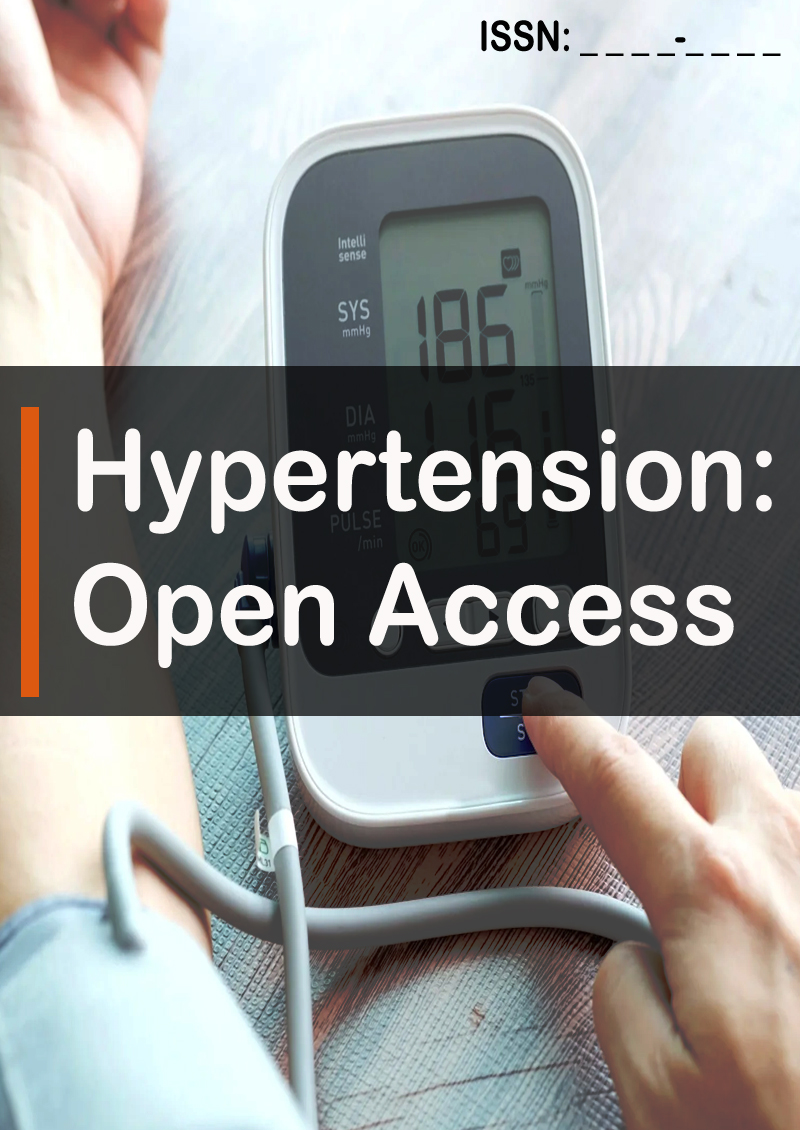Aims and Scope
Aim
Hypertension: Open Access aims to provide a premier platform for researchers and healthcare professionals to present their latest findings and methodologies in the field of hypertension. Our objectives include:
- Advancing the scientific understanding of hypertension and its complications.
- Promoting interdisciplinary collaboration and research that addresses the challenges associated with hypertension.
- Encouraging practical applications of research findings to improve patient care and public health outcomes.
- Supporting the development of innovative therapies and preventive measures.
Scope
The scope of Hypertension: Open Access encompasses a wide range of topics related to hypertension, including but not limited to:
- Clinical Hypertension: Diagnosis, treatment options, and management strategies.
- Epidemiology: Population studies, risk factors, and public health implications.
- Pathophysiology: Mechanisms underlying hypertension and related cardiovascular diseases.
- Lifestyle Interventions: Impact of diet, exercise, and behavioral changes on blood pressure.
- Innovative Research: Emerging therapies, biomarkers, and novel clinical trials.
Types of Contributions
We welcome various contributions, including:
- Original research articles presenting new findings.
- Comprehensive reviews summarizing existing knowledge.
- Short communications detailing preliminary results or novel methodologies.
- Case studies illustrating practical applications and patient outcomes.
Editorial Standards All submissions to Hypertension: Open Access undergo a thorough peer-review process to maintain the highest standards of quality and ethical integrity. We are committed to upholding transparency and reproducibility in all research published in our journal.
We invite you to submit your manuscript and contribute to the advancement of knowledge in hypertension research and its impact on cardiovascular health.
|
Hypertension |
Hypertension awareness |
Clinical trials |
|
High blood pressure |
Health promotion |
Randomized controlled trials |
|
Cardiovascular disease |
Telehealth |
Observational studies |
|
Blood pressure management |
Healthcare systems |
Systematic reviews |
|
Epidemiology |
Integrative medicine |
Meta-analysis |
|
Risk factors |
Complementary therapies |
Biomarkers |
|
Pharmacological treatments |
Pharmacogenomics |
Genetic factors |
|
Non-pharmacological treatments |
Personalized medicine |
Epigenetics |
|
Lifestyle interventions |
Predictive modeling |
Socio-economic factors |
|
Patient education |
Risk assessment |
Health disparities |
|
Public health |
Health informatics |
Healthcare access |
|
Cardiovascular health |
Data analytics |
Screening programs |
|
Comorbidities |
Big data |
Intervention strategies |
|
Obesity |
Health outcomes |
Community health programs |
|
Diabetes |
Clinical practice guidelines |
Consensus statements |
|
Renal function |
International guidelines |
Population health |
|
Salt intake |
Global health |
Lifestyle modification |
|
Exercise diet |
Primary care |
Salt sensitivity |
|
Smoking cessation |
Specialty care |
Cardiovascular prevention |
|
Alcohol consumption |
Multidisciplinary approaches |
Hypertensive crisis |
|
Stress management |
Healthcare policy |
Prehypertension |
|
Antihypertensive agents |
Health literacy |
Guidelines adherence |
|
Beta-blockers |
Chronic disease management |
Patient-centered care |
|
Ace inhibitors |
Intervention efficacy |
Interdisciplinary collaboration |
|
Calcium channel blockers |
Prevention strategies |
Evidence-based practice |
|
Diuretics |
Behavioral interventions |
Healthcare improvement |
|
Hypertension guidelines |
Medication adherence |
Quality improvement |
|
Resistant hypertension |
Treatment adherence |
Health systems research |
|
Secondary hypertension |
Outcomes research |
Patient outcomes |
|
Arterial stiffness |
Epidemiological trends |
Hypertension treatment guidelines |
|
Endothelial dysfunction |
Public awareness campaigns |
Telemedicine |
|
Inflammation |
Health education |
Digital health |
|
Oxidative stress |
Clinical decision-making |
Health technology |
|
Metabolic syndrome |
Hypertension complications |
Quality of life |
|
Circadian rhythm |
Stroke |
Patient adherence |
|
Nocturnal hypertension |
Heart attack |
Vascular health |
|
Ambulatory blood pressure monitoring |
Heart failure |
Arterial health |
|
Home blood pressure monitoring |
Renal impairment |
Health technology assessment |
|
Blood pressure variability |
Cognitive impairment |
Innovation in healthcare |



